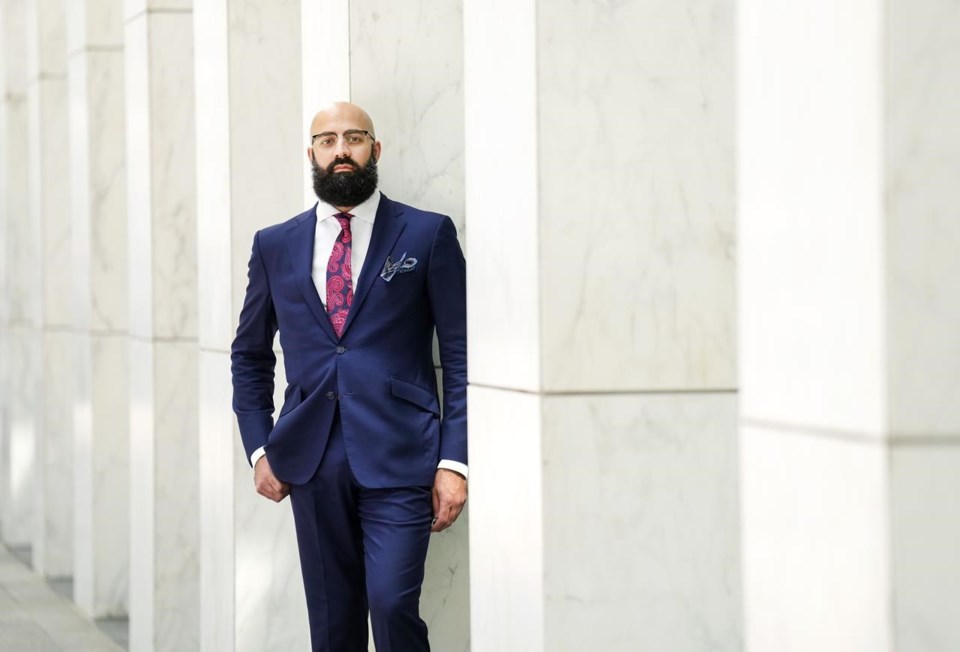When Imad Ansari wanted to start investing around 15 years ago, his options were limited.
As a practicing Muslim, Ansari wanted to make sure his investments were halal, meaning that they followed Islamic rules. But there was little on offer that adhered to the principles of halal finance, which for him centre around fairness and equity.
For years, Ansari resorted mostly to picking individual stocks, researching to make sure he was putting his money where his faith was — a lot more work and often more risk than a popular mutual fund, bond or ETF.
But over the past several years, the Ottawa-based IT professional says the landscape has changed dramatically. He’s noticing more and more options for Muslim clients in mainstream finance, such as halal ETFs, which he’s able to invest in through his financial institution. Ansari has moved most of his previously self-directed investments into those kinds of funds.
“It has been such a game-changer,” he said.
In 2021, 4.9 per cent of people in Canada identified as Muslim — more than double the share two decades earlier, according to Statistics Canada. That’s almost 1.8 million Muslims, many looking for ways to grow their wealth and buy homes without compromising their faith.
“I still think there's this tremendous room for growth right now” for halal financial products, said Ansari.
Halal financial products, or halal investing, need to comply with certain rules in Islam. This might also be called Shariah investing or Shariah-compliant investing, as Shariah refers to the rules set out by the religion.
Broadly speaking, halal finance means a person can’t pay or receive interest, and must avoid investing in certain sectors or products such as alcohol, pork or gambling.
Islamic finance operates on the principles of profit and risk sharing, said Khaled Sultan, a senior wealth advisor and portfolio manager at CIBC. While adherence to the rules varies, and some of the minutiae of halal finances may be disagreed upon by scholars, there’s no disagreement over the core tenets of not investing in specific sectors and not paying or profiting off of interest, he said.
Mohamad Sawwaf, founder and CEO of financial services firm Manzil, sees it as a subset of ESG, or environmental, social, and corporate governance, an approach to investing that takes into consideration certain values.
Manzil launched in 2020 with a halal mortgage fund, and has since expanded into wealth management with a robo-advisory platform, and into estate planning.
“What we do is we take the guesswork (out of) what is compliant and what isn't,” Sawwaf said.
Following Islamic principles means there’s a broad swath of financial products and investment vehicles that are off-limits, said Sawwaf. For example, many Muslims in Canada have been renting for years if not decades because of a lack of halal mortgage options, he said — today, Manzil’s mortgage program has around 12,000 families on its waitlist, and can’t raise funds fast enough to meet demand.
One of the challenges with halal investing has been that traditional low-risk vehicles like bonds weren’t allowed because of the rule about interest, said Sawwaf. As a result, many of the funds available earlier on were higher-risk, he said.
“If you were a less risky investor, that really wouldn't suit you,” he said. “So we really wanted to kind of tackle the fixed income side of those balance sheets. And that's why we've launched this fund to start with, but with the hopes that we would launch other types of fixed-income funds.”
Manzil clients can invest in the company’s own mortgage fund, but also a selection of other funds, some based in the U.S. and some based on Islamic bonds, called Sukuk. One of the perks of investing with a firm like Manzil is that customers can access some investment opportunities based outside of Canada, where there are more options, said Sawwaf.
The next frontier Sawwaf wants to conquer is the retail side of finance, with hopes of being Canada’s first full-service halal financial institution.
CIBC's Sultan remembers visiting advisors in 1999 when he first had money to invest, and realizing they couldn't help him invest within Islamic principles.
“Out of necessity, I ended up having to teach myself both the financial side as well as the Islamic side,” said Sultan.
But a lot has changed since 1999. While firms have been created to meet the needs of Muslim customers, like Winnipeg-based investment firm Canadian Islamic Wealth, mainstream financial companies are also wading in. Wealthsimple launched its halal investment portfolio in 2017, and major insurers like Manulife and SunLife offer Shariah-aligned funds. Halal mortgages have existed in Canada for decades, but today there are far more firms offering them, mostly “mom-and-pop” companies, Sultan said.
Despite all the growth in halal finance, Sultan still sees a lot more room to grow, with demand for halal investing and lending far outstripping supply. He believes that Canada’s major financial institutions have an opportunity to step up and start offering more financial products designed for their Muslim customers.
However, Sultan is confident that will happen. He compared the sector to halal foods, which were much more difficult to find in decades past and are now readily available at grocery stores. Manzil’s mortgage waitlist illustrates the demand waiting in the wings, he said.
“It's going to be quite profitable for the bank, it's going to be win-win-win for everybody.”
Sultan advised new investors who are looking for halal ways to grow their money to not compromise their values, but also to remember that pragmatism is one of Islam’s values.
He also recommends that they make requests of their financial institutions in the hopes that more options will become available in the future.
“If enough people ask, it’s a question of demand and supply,” he said.
This report by The Canadian Press was first published July 27, 2023.
Rosa Saba, The Canadian Press




